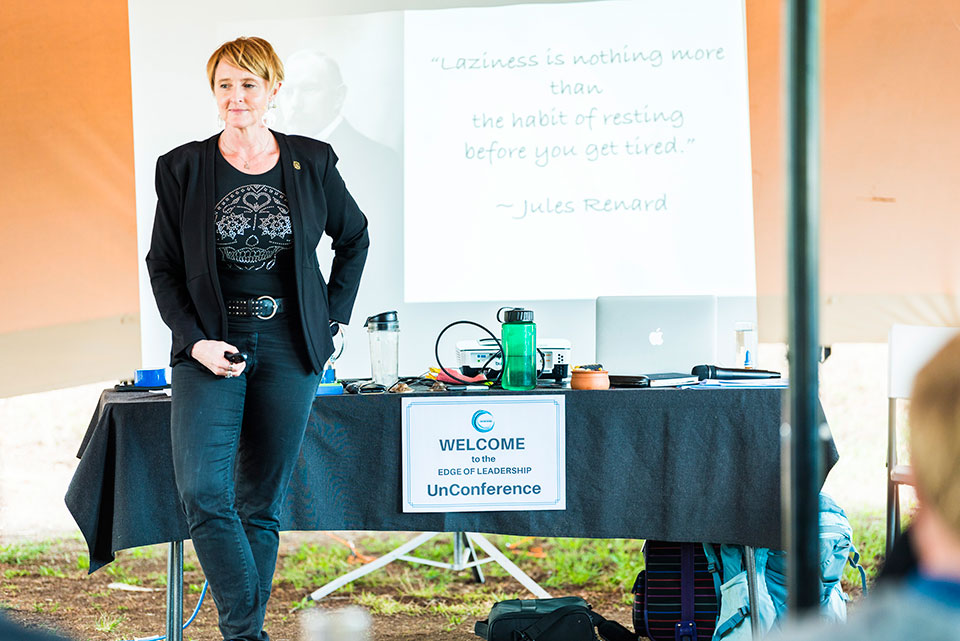How to spot and handle undermining behaviour

You may not expect everyone to be your friend at work, but it is reasonable to expect them to be friendly, or at least civil. It can come as a shock if a colleague starts undermining you. It can be subtle at first: they may highlight your mistakes or make a joke at your expense. They might downplay your achievements or give you a backhanded compliment. They might laugh it off as friendly banter, but there’s a barb that smarts.
In more overt attacks, they may take credit for your work, blame you when things go wrong, or withhold information or resources from you, sabotaging your work progress.
At the very pointy end of workplace aggression, they may yell or swear at you, and even belittle or humiliate you.
Underhanded attacks may come from those you supervise, peers, or worst of all, your own supervisor.
What causes people to belittle others? Research (Lee et al 2016) indicates that some victims of workplace social undermining go on to become perpetrators themselves, after having both their personal resilience worn down as well as their moral barometer. Others belittle because they have low self esteem, lack empathy or are jealous of your achievements.
Whatever the reason for others undermining you, it doesn’t feel great. It can affect your mental health and personal resilience. In a recent study (Tallest Poppy, 2018), a whopping 69.5% of respondents reported that being undermined affected their productivity, along with eroding trust, becoming more disengaged, and increasing a sense of the impostor syndrome.
The most difficult situations are from peers and supervisors. Here are key strategies to consider.
What to do if a COLLEAGUE undermines you
If the undermining consists of subtle put downs and backhanded compliments, deploy your best emotional aikido moves. Aikido is a Japanese martial art where the aim is to disarm your opponent without doing harm to them or you. When it comes to insults, agree and deflect.
For example, they might say something like, “That was a pretty good presentation, considering you’ve got no experience on the subject” [compliment followed by a put down about one’s expertise]. Respond by agreeing and adding: “Thanks! As a rookie I really had to do my homework. I really immersed myself on the topic.” By admitting your lack of experience and then showing how hard you worked to overcome it takes the wind out of the insult. By showing strength, you deny someone’s effort to gain power over you. This can deter future attacks.
If the undermining is more like sabotage, be direct. Be careful: It’s too easy to let frustration boil over and call them out, adding humiliation to other grievances. It’s better to be curious. Ask, don’t tell. Start by naming the emotion you observe. “I notice that you seem frustrated.” This lowers defence mechanisms as it shows you’re paying attention, boosting the trust biochemicals. Follow with an observation, “It seemed like you were blaming me for the situation.” Next, ask a question to break the tension,“Can you tell me what’s going on?” Listen, and stay open. Next, be clear about the consequences of their actions on you: “I felt unsupported.” Finish with what you expect instead: “We’re on the same team. We can work things out together. Blaming me, or taking credit for my work, doesn’t reflect well on you. Let’s do better together.” Giving them the opportunity to come clean and step up to better behaviour can build allies. If it continues, you may need to escalate it to your supervisor.
What to do if a SUPERVISOR undermines you
Research shows that abusive supervisors will often take out their frustration on workers who demonstrate weakness in some way (Reynolds, 2009). Possibly this is because they anticipate fewer repercussions from someone who is compliant as opposed to someone who shows personal fortitude. The antidote is to stand strong and resist.
The next step requires buckets of courage. Call out the behaviour. Do this privately so as not to add embarrassment or escalate the issue. Be firm and calm. Cite the behaviour or comments and explain its impact on you and others. Express concern that it was not having the effect they intended and may in fact be eroding their reputation.
Report them. This too requires fortitude. Around 85% of whistleblowers suffer anxiety over possible repercussions. (Van der Veldan et al, 2018). Reporting a supervisor breaks lines of trust and the relationship is often irreparable.
There is plenty to consider before addressing undermining behaviour, from whichever direction. Undermining behaviour from others can be taxing. It’s a case of considering the impact of not changing anything versus drawing a line in the sand. In considering your choice, honour your own integrity and refuse to accept abusive behaviour in your self or others.
Written by Zoe Routh.
Bring the best of the CEOWORLD magazine's global journalism to audiences in the United States and around the world. - Add CEOWORLD magazine to your Google News feed.
Follow CEOWORLD magazine headlines on: Google News, LinkedIn, Twitter, and Facebook.
Copyright 2025 The CEOWORLD magazine. All rights reserved. This material (and any extract from it) must not be copied, redistributed or placed on any website, without CEOWORLD magazine' prior written consent. For media queries, please contact: info@ceoworld.biz








